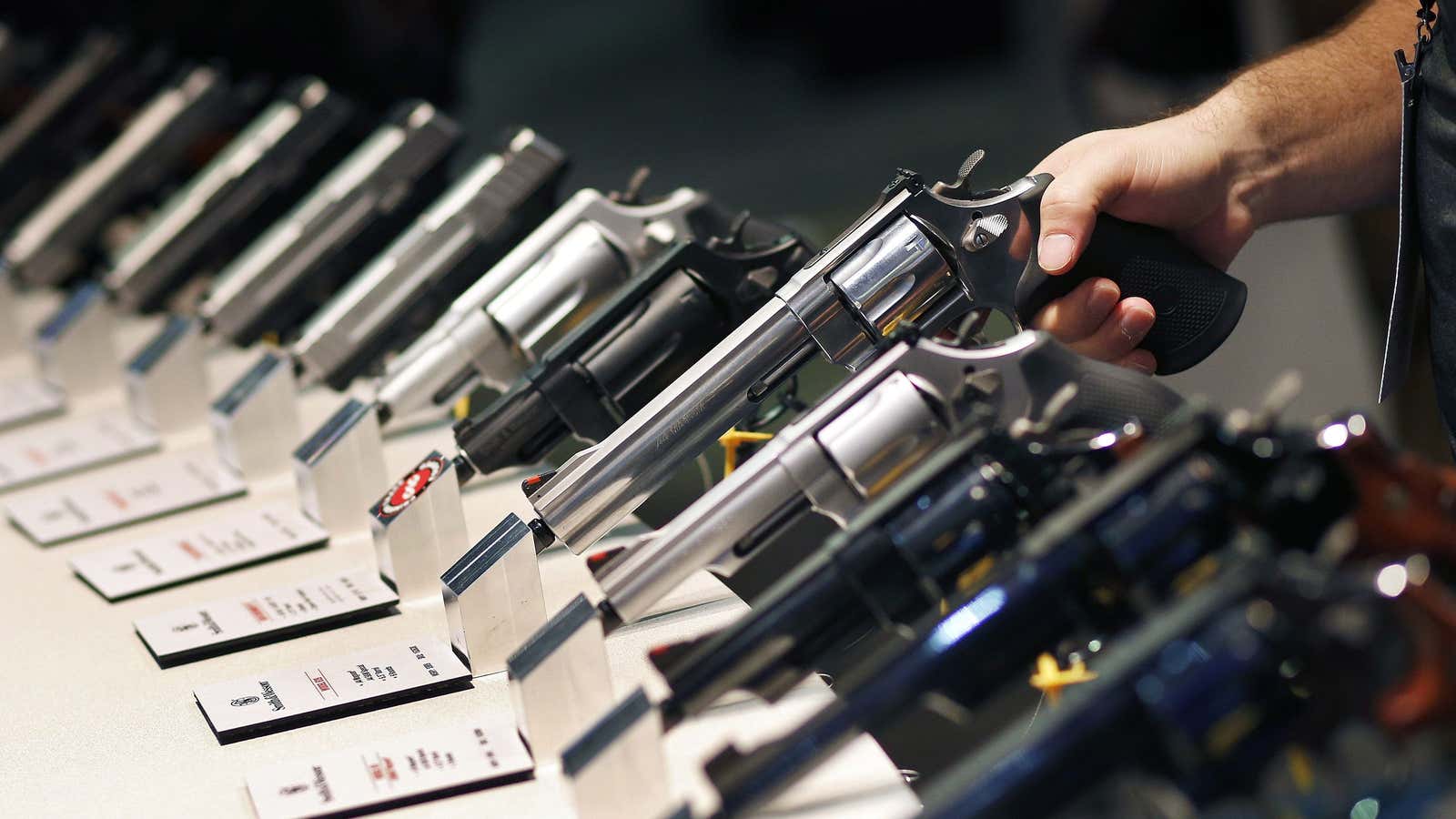Smith & Wesson, the 164-year old maker of pistols and rifles, will vote today to change its corporate name to American Outdoor Brands.
The company said the new name makes more sense as it expands into other businesses—last month, for example, it acquired UST Brands, a camping and survival gear company. The company’s guns will continue to be sold under the Smith & Wesson brand.
The name change is less a repudiation of its heritage, and more of a recognition of its limitations. That’s because two things are true about guns in America:
- People buy a lot of them. There are approximately 350 million firearms in the US, or more guns than people.
- Lots of people don’t own guns. Recent surveys show the number of households with firearms is between 32% and 43%, and has fallen considerably since the early 1990s, when more than half of all households owned guns.
Taken together, those facts means gun ownership is clustered among the minority of Americans who really love their guns—each owns an average of eight firearms. They are Smith & Wesson’s customer base, which is loyal and passionate. But it’s unlikely they’ll be buying a lot more, at least in the near future: Firearms sales jump when owners anticipate coming restrictions on purchases, but with Donald Trump’s victory, gun owners will have little to fear.
For Smith & Wesson to keep growing, it needs to sell more of its non-weapon products. Outdoor sports equipment sales—including everything from snowmobiles to fishing poles—is an estimated $121 billion business, compared to the approximately $16 billion in sales recorded by the firearms industry. But since many non-gun owners would never knowingly buy camping equipment from the US’s most famous arms dealers, it makes sense to create distance between the brands.
There may be other motivations, as well. Few topics are as politically charged in the US as guns and gun ownership, which means Smith & Wesson is a lightning rod for protesters, politicians, and activist investors. There’s a growing movement to push pension funds into divesting shares of firearm companies and shooting victims are eager to hold manufacturers liable for gun violence in court.
Changing the name of the company may not deflect all, or even most, of the negative attention, but it may in time make it easier for the company to appear to be more than just its most famous products. And if it’s ever forced to sell its weapons division, the change won’t seem as jarring to the gun-buying public.
That logic is no comfort to Smith & Wesson’s loyalists, who see the name change as evidence the company is selling out to political correctness. With a gun enthusiast in the White House and solid NRA-friendly majorities in Congress, Smith & Wesson’s name change at least gives them something to complain about.




